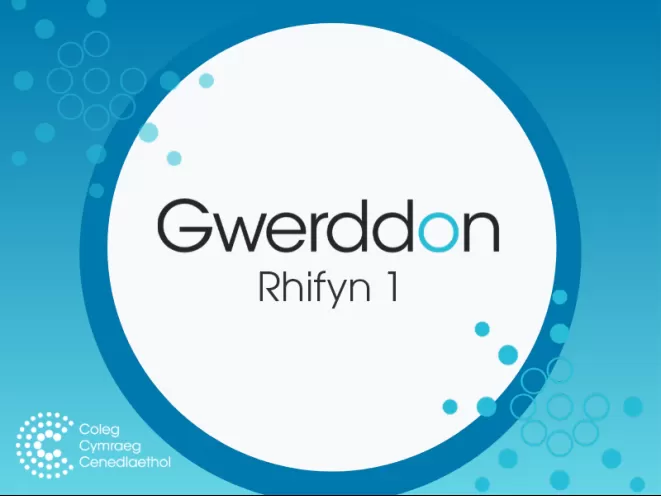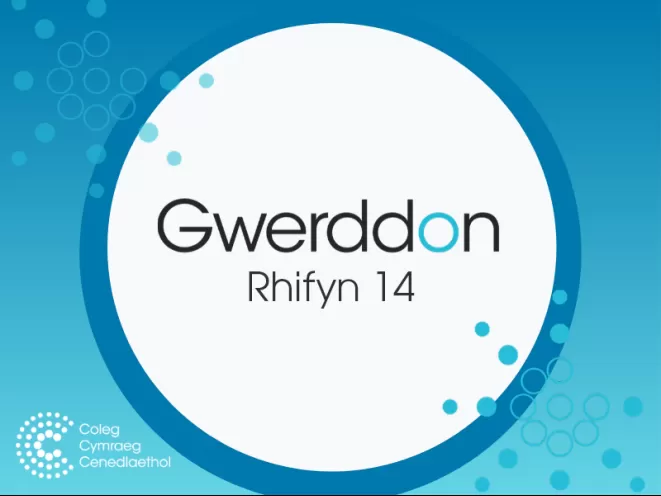Strengthening and revitalising democracy was a common rationale for establishing regional goverment in Spain and the United Kingdom. In this context, this article aims to assess the impact of regional government on the relationship between civil society and devolved government in Wales and in Catalonia. Based on case studies, the extent to which regional government structures promote civil society participation is assessed and regional government’s impact on the identity of civil society is analysed. Despite the differences, in both cases regional goverments undertook ‘top-down’ efforts to build civil society and the latter has contributed to the Catalan and Welsh nation-building projects. The findings draw attention to the potentially negative democratic implications arising from regional government and civil society relations and the effects of broader political culture.
Regional government and civil society in Wales and Catalonia
(The nature of language acquisition processes in children: Marking grammatical gender in Welsh)
Research on the acquisition of grammatical gender has shown that in many languages children gain an early command of gender. Often in these languages gender marking is quite overt and provides a clear one-to-one correspondence between a marker and the gender encoded. In Welsh, however, gender marking is more complex. It is marked by mutations, a set of morpho-phonological changes that affect the initial consonants of words, and the mapping between mutation and gender is quite opaque. Two mutation types are used to mark feminine gender: both feminine nouns modified by the definite article and adjectives following feminine nouns undergo soft mutation, and the feminine gender of the possessive adjective ‘ei’ is marked by aspirate mutation of the modified noun. This paper presents two studies that examine children’s and adults’ productive command of gender as expressed in the mutation of nouns modified by the definite article, and adjectives modifying nouns. Children, between the ages of 4½ and 9 years old, and adults were invited to take part in the studies. First, a semi-naturalistic study was conducted to obtain knowledge about speakers’ usage of gender marking. A Cloze procedure was then used to elicit speakers’ production of masculine and feminine forms, with both real words and nonsense forms, in a variety of linguistic contexts. Some of these contexts provided cues to gender status, some did not. The data obtained indicated that the acquisition of the Welsh gender system is a long drawn-out process, and children have not mastered the system even by 9 years of age. Welsh speakers, even in adulthood, pay little or no attention to the possible cues present in the input. Results suggest that when a language has a complex gender system that is marked by opaque morpho-phonological processes the course of development is protracted and variable.
Esboniadur Cerddoriaeth Cymru
Cofnodion yn ymwneud â cherddoriaeth Gymraeg a Chymreig. Mae'r cofnodion yn deillio o'r Cydymaith i Gerddoriaeth Cymru (gol. Pwyll ap Siôn a Wyn Thomas), cyfeirlyfr awdurdodol sydd yn cwmpasu holl gyfoeth cerddoriaeth yng Nghymru o’r 6ed Ganrif hyd at y presennol. Ffrwyth prosiect cydweithredol rhwng Ysgol Cerddoriaeth a’r Cyfryngau ym Mhrifysgol Bangor a’r Coleg Cymraeg Cenedlaethol yw’r Cydymaith i Gerddoriaeth Cymru. Cyhoeddir Cydymaith i Gerddoriaeth Cymru ar ffurf llyfr clawr caled gan wasg Y Lolfa, Talybont gyda chefnogaeth a chymorth ariannol Y Coleg Cymraeg Cenedlaethol.
Esboniadur Drama Radio
Gwybodaeth drylwyr am dair drama allweddol: Siwan gan Saunders Lewis Tair gan Meic Povey Tŷ ar y Tywod gan Gwenlyn Parry
Health and lifestyle changes associated with ageing in rural communities: the emphasis on current concerns in ...
The rapidly ageing population has been identified as a major global challenge; within Wales there is a growing imbalance in the age-profiles of rural communities in particular. The demands of providing appropriate healthcare for a changing population are exacerbated by lifestyle changes associated with ageing, specifically low levels of physical activity, reduced exposure to the sun and compromised ability to synthesise vitamin D. This report focuses on two important health outcomes affected by these changes that are of increasing concern within Wales: diabetes (DM2: diabetes mellitus type 2) and falls incidence. The article critically reviews the evidence base pertaining to the relationships between physical activity, vitamin D, and both the pathogenesis of DM2 and falls incidence. Current interventions are discussed and a series of recommendations for service delivery within Wales’ rural communities are presented. We argue that there is a clear role for targeting these modifiable lifestyle factors in reducing the prevalence and severity of falls and diabetes, two growing areas of social and economic concern within Wales.
Litter on rural Welsh roads: A case study from Penisa’r Waun
701 pieces of litter were collected per kilometre from a small rural road in Gwynedd. The minimum annual ‘hidden’ cost of this litter – uncollected by the local authority – was £11.81 per kilometre. The comparable annual cost of such litter on small rural roads throughout Wales is £230,000. A substantial proportion of these costs could be eliminated through introducing a deposit system for cans and bottles. 13 specific companies were responsible for producing more than one quarter of all the litter collected. The Welsh Government could arrange an annual mitigation payment of £58,000 from them in order to defray the hidden costs of litter associated with their activities.
‘’Does dim gwadu ar Etifeddiaeth’: A study of how John Gwilym Jones discusses legacy in Ac Eto Nid Myfi and a ...
One of the main themes in the work of John Gwilym Jones is how man is a slave to his chromosomes at the mercy of heredity and his environment. This article focuses on the said theme in his well-known play, Ac Eto Nid Myfi. In order to consider how John Gwilym Jones the author, as opposed to John Gwilym Jones the playwright alone, made use of this theme, due attention is given to a selection of his short stories. The article also discusses the influence of Darwin’s ideas of heredity on Realism as well as on John Gwilym Jones himself.
The Star in the Cross: the effect of the early imperial laws of Rome on the relationship between the Church an...
The relationship between the Roman Catholic Church and the Jews has always been difficult, and this article explores the way in which the early imperial laws of Rome influenced that relationship. Having discussed a selection of laws, consideration is given to how they affected the social standing of the Jews in a growingly Christianised world. There is also a discussion of how a few of the early anti-Jewish laws seemed to be reintroduced during the Middle Ages, as well as during the horrific event which proved to be fateful to the Jewish-Christian relationship, the Holocaust. The article concludes by examining the significance of those imperial laws and questions the relationship of the Church and the Jews in the twenty-first century.
The translation procedures of the Translation Centre for the bodies of the EU and their relevance to Wales
This article discusses translation procedures and technology used in the Translation Centre for the Bodies of the European Union (Centre de Traduction, CDT). The relevance of the workflows and technology will then be briefly discussed in the context of English-Welsh-English translation in Wales, with specific reference to the Welsh Government Translation Service.
'Y Wladfa: Settlement without colonisation?' Geraldine Lublin (2009)
This paper offers a fresh analysis of a number of aspects of Y Wladfa, the Welsh settlement in Patagonia, by bringing into the discussion the notion of ‘liminality’ as interpreted by postcolonial theory. After providing some historical background of the settlement that takes full account of the Argentinean perspective, we set out to explore the pronounced duality characteristic of the Welsh pioneers in Chubut in their stance as virtual colonisers and colonised. This double consciousness, which can be traced back to the very origins of the Fenter Fawr, is studied both in a general context and with particular reference to the complex relationship that developed between the Welsh immigrants and Patagonia’s original peoples.
Cynan, The Establishment and the 1960s' Revolution
Cynan (Albert Evans-Jones, 1895-1970) was one of the most prominent Establishment figures in Wales for a large part of the twentieth-century. He served as Archdruid twice and played a crucial role in the controversial decision by the Gorsedd of Bards to take part in the Investiture ceremony of Prince Charles in Caernarfon castle on 1 July 1969. He was also one of the authors of the National Eisteddfod’s Welsh-language Rule, a policy which he supported firmly during his period as President of the Eisteddfod Court towards the end of his life. In contrast, Dafydd Iwan was one of the main leaders of the Welsh Language Society, the protest group that adopted radical campaigning tactics during the 1960s. In this article, the clash between Cynan and Dafydd Iwan is seen as one representing a struggle about the very definition of Welshness at the time.
'The sound of fighting in our ears': Presenting the Great War in Welsh
The Great War was one of the most important events in Welsh history, the ramifications of which have seriously affected the society and culture of the country for decades. However, the history of the years of fighting has often been presented to a Welsh-speaking audience in an oversimplified way, emphasising the horrors of the War without considering the context. This study briefly traces how the way the War has been presented in Welsh-language programmes over the decades, before considering in detail some of the problems arising from that presentation of the slaughter.












